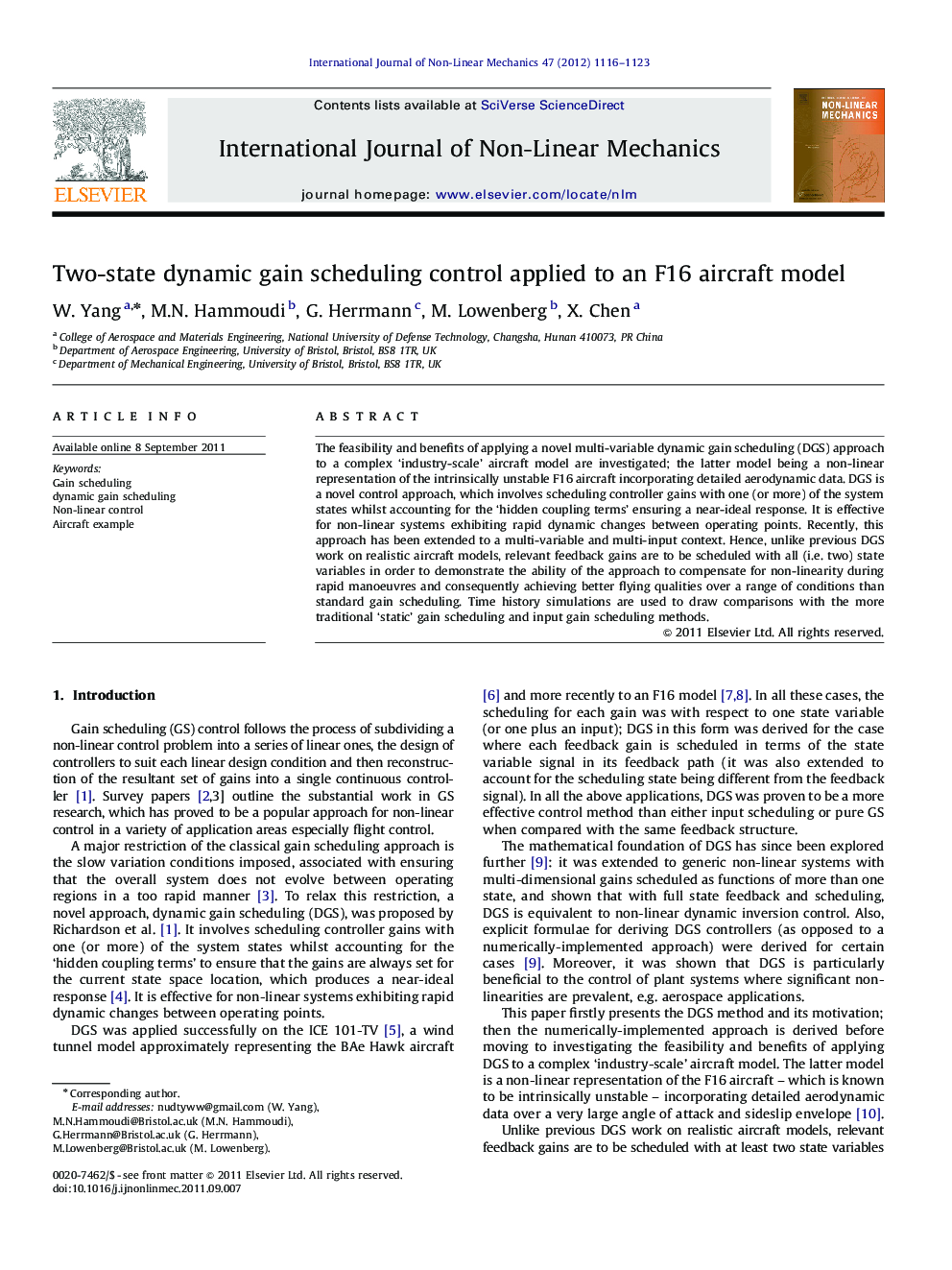| Article ID | Journal | Published Year | Pages | File Type |
|---|---|---|---|---|
| 785697 | International Journal of Non-Linear Mechanics | 2012 | 8 Pages |
The feasibility and benefits of applying a novel multi-variable dynamic gain scheduling (DGS) approach to a complex ‘industry-scale’ aircraft model are investigated; the latter model being a non-linear representation of the intrinsically unstable F16 aircraft incorporating detailed aerodynamic data. DGS is a novel control approach, which involves scheduling controller gains with one (or more) of the system states whilst accounting for the ‘hidden coupling terms’ ensuring a near-ideal response. It is effective for non-linear systems exhibiting rapid dynamic changes between operating points. Recently, this approach has been extended to a multi-variable and multi-input context. Hence, unlike previous DGS work on realistic aircraft models, relevant feedback gains are to be scheduled with all (i.e. two) state variables in order to demonstrate the ability of the approach to compensate for non-linearity during rapid manoeuvres and consequently achieving better flying qualities over a range of conditions than standard gain scheduling. Time history simulations are used to draw comparisons with the more traditional ‘static’ gain scheduling and input gain scheduling methods.
► A novel dynamic gain scheduling (DGS) is applied to a complex ‘industry-scale’ model of the F16. ► Controller gains are scheduled with the system states, accounting for the ‘hidden coupling terms’. ► DGS is effective for non-linear systems exhibiting rapid dynamic changes between operating points. ► Relevant feedback gains are to be scheduled with all state variables of the F16 model approach. ► Better flight qualities over a range of conditions than standard gain scheduling are achieved.
